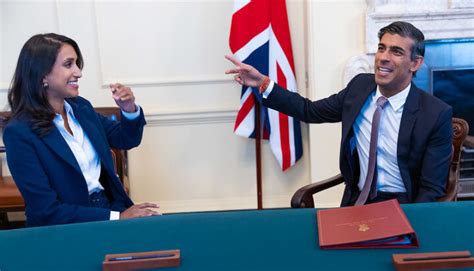Clean energy lobbyists the REA have enthusiastically welcomed prime minister Rishi Sunak’s surprise decision to schedule July 4 as 2024’s general election.
“The upcoming election is a pivotal moment for the UK” said Rollo Maschietto, public affairs manager of the REA (in full, the Association for Renewable Energy and Clean Technology):
Citing the REA’s 2024 manifesto, Maschietto explained that “tthe next administration will make decisions that will determine whether we meet our Net Zero targets or fall short”.
“The only way to ensure enduring energy security and an affordable energy system is by ending our reliance on volatile imported fossil fuels and moving to renewables and clean technologies, the REA spokesperson insisted.
The trade group would work to have renewables and the transition to a zero-carbon economy as central topics in the forthcoming election campaign.
The REA is calling on all political parties to present robust, actionable plans that will drive the UK towards a sustainable energy future. It stood to work with all political parties and the future government to implement these plans.
Another trade body, BEAMA, which represents UK makers of power equipment & infrastructure, saw the election as presenting a stark choice for the sector.
“The next government has a simple decision to make”, its head Yselkla Farmer declared. “Either create an environment for prosperity based on a successful green economy, or drive away billions of pounds of private investment and risk jobs with policy uncertainty and delay”.
Representing over 200 electrical manufacturers and innovators, the lobbyist called on Sunak or his replacement to prioritise:
- Investing in grid capacity – The UK will need a larger electrical grid to connect the renewable generators, heat pumps, EV charge points, and other low carbon technologies needed to reach Net Zero.
- Securing the UK energy market, by disconnecting power prices from unstable international gas markets The result would be electricity tariffs suppressed, providing certainty & security for businesses & householders.
- Levelling the playing field in heating technology– Removing the extra VAT paid by households opting for low carbon heating technologies, would make Net Zero the most affordable choice.
- Getting Smart Metering right – A more dynamic electricity system, low in carbon, would follow if consumers get access to real time consumption data. Completing Britain’s roll-out of smart meters would the nation doesn’t fall behind our continental neighbours
“Whoever wins the election”, BEAMA’s Farmer added, “they will need to prioritise a stable policy environment. Clarity from the government allows the innovative, high-impact solutions from industry, tackle the structural challenges in building a low cost, low carbon and secure energy system.”
For business energy supplier nPower, chief operating officer Anthony Ainsworth also called for certainty. “This needs to be a pro-business, energy-focussed election”, he said.
Ainsworth cited nPower’s two most recent Business Energy Tracker reports. These showed how businesses wanted significantly more government support to invest in energy reduction measures, in order to better manage demand, reduce emissions and reinvest in operations.
“These are requirements we have long campaigned for”, said the nPower boss. “They need to be a key priority for the next government.
“Commercial energy users also want a modern, sustainable and secure system that supports their long-term Net Zero ambitions”, Ainsworth went on.
“Without business investment, many of our energy and net zero goals won’t be possible, so supporting business is supporting economic growth, employment and national prosperity”.




